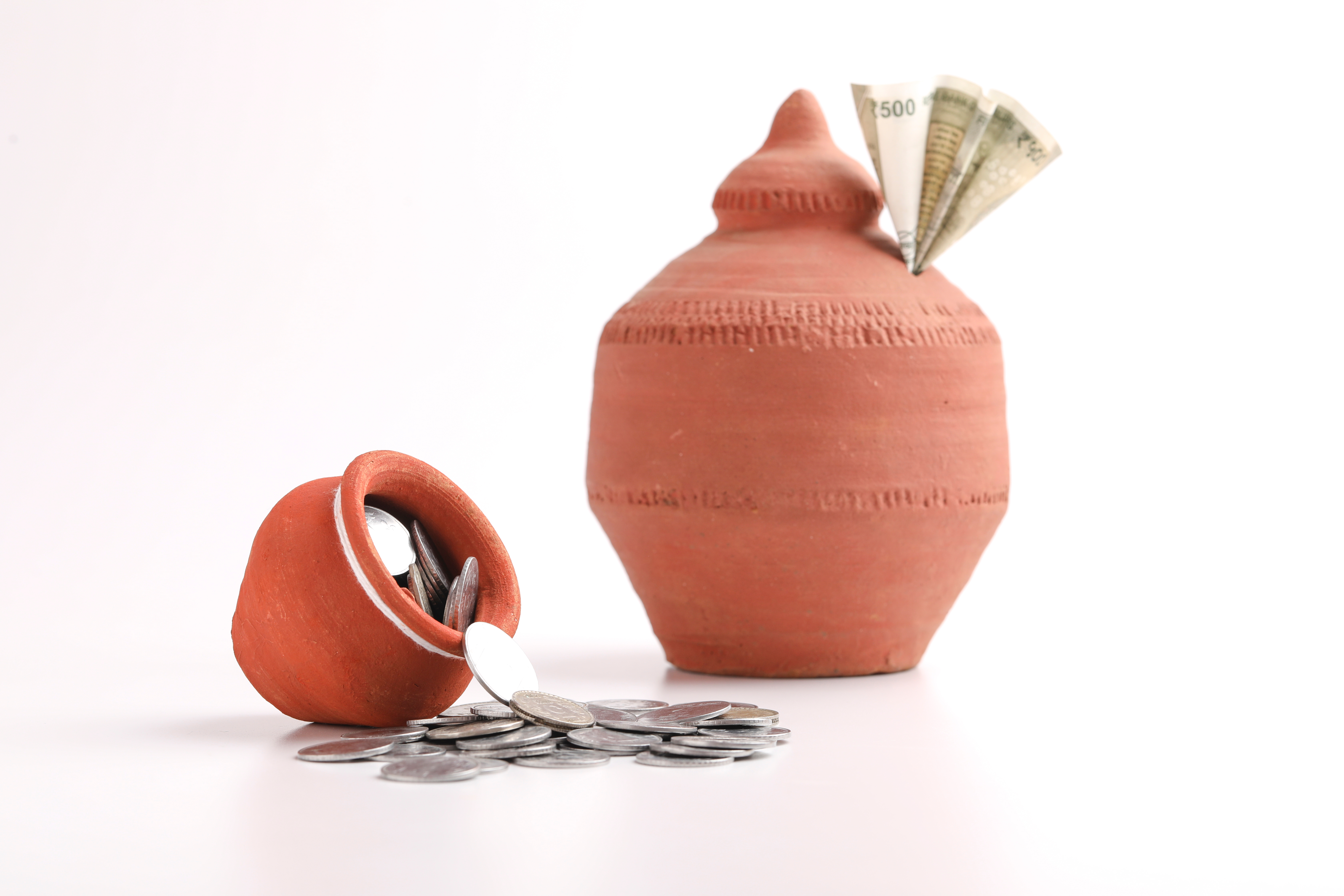
out-of-the-world
banking experience


Table of Contents
ToggleRecurring deposit interest rates are the rate of interest that is paid on deposits made into a recurring deposit account. The interest rate is usually fixed for the term of the deposit and can vary depending on the bank or financial institution. Recurring deposits typically have a higher interest rate than savings accounts but offer more flexibility in terms of withdrawals.
Most banks and financial institutions offer a wide range of RD interest rates, so it is important to compare the rates before choosing an account. Recurring deposit rates can vary depending on the term of the deposit, the amount deposited, and the type of account. For example, some accounts may offer a higher recurring interest rate for a longer-term deposit, while others may offer a lower rate for a shorter-term deposit. It is also important to consider any fees or charges that may be associated with an account before choosing one.
| Particulars | Details |
| Interest Rate Range | From 2.50 to 8.50 |
| Minimum Deposit Amount | Rs.10 (for post office RD) |
| Tenure of the Investment | 6 months to 10 years |
| Interest Compound Frequency | Quarterly |
| Partial and Mid-term Withdrawal | Not Allowed |
| Premature Closure | Allowed with a penalty |
*A post office recurring deposit can be started with as low as Rs. 10 RD interest rate is compounded quarterly.
The best RD interest rates will depend on your specific needs and goals. However, there are a few general tips that can help you choose the best rates:
1. Consider your time horizon: If you need the money sooner, you’ll want to choose a shorter-term RD with lower interest rates. If you have more time, you can choose a longer-term RD and lock in higher interest rates.
2. Compare different banks and RDs: Some banks offer higher interest rates for longer terms, while others may have lower rates for shorter terms. It’s important to compare different banks’ options before choosing an RD.
3. Keep an eye on the market: Interest rates are influenced by economic conditions. If interest rates are rising, you may want to lock in an RD now to avoid paying higher rates in the future. Conversely, if rates are falling, you may want to wait and see if you can get a better RD later on.
4. Compare RDs with other investment options: RDs are just one type of investment. Before choosing an RD, compare it with other options, such as stocks, bonds, or mutual funds. Each of the Investment options has its own set of pros and cons, so it’s important to understand all your options before investing.
5. Consider fees and taxes: Some RDs come with fees, such as account maintenance fees or early withdrawal penalties. And, depending on the type of RD, you may be subject to taxes on the interest you earn. Be sure to factor these into your decision before investing.
These are just a few things to keep in mind when considering an RD. By doing your research and being aware of the potential risks, you can make sure that you’re making the best decision for your financial future.
RD Interest Rates in all banks differ from one another. Many banks offer a good interest rate on recurring deposits. However, the best bank for recurring deposits may vary from person to person. It all depends on the individual’s needs and preferences.
The highest RD interest rates are generally offered by large banks. However, smaller banks and credit unions may also offer competitive rates. It is always best to compare rates from different banks before deciding which one to choose.
Below is a table for RD Interest Rates of different banks:
| Banks | General Interest Rates % |
| State Bank of India | 4.40-5.50 |
| ICICI | 3.50-5.50 |
| HDFC | 4.40-5.50 |
| Axis Bank | 4.40-5.75 |
| Punjab National Bank | 4.40-5.30 |
When looking for RD Interest Rates in banks, it is important to consider other factors such as fees, customer service, and account minimums. These can all affect the overall experience of having a recurring deposit account.
There are different types of RD schemes available in the market, each with its own set of features and benefits. The most popular RD schemes are
1. Fixed deposit RD scheme: In this type of scheme, the interest rate is fixed for the entire tenure of the deposit. This makes it easy to plan your finances and know exactly how much money you will earn throughout the deposit.
2. Cumulative RD scheme: Under this scheme, the interest is accrued over time and paid out at maturity. This can help you earn a higher return on your investment, but it also means that you will not have access to your money until the end of the deposit period.
3. Flexible RD scheme: A flexible RD account allows you to make withdrawals and deposits as you please. This can be helpful if you need access to your money for unexpected expenses or want to take advantage of higher interest rates.
When choosing an RD scheme, it is important to consider your financial goals and needs. You should also compare interest rates and terms before deciding which is the best RD scheme for you.
Recurring deposit rates are beneficial as they provide a way for people to save money. By setting aside money into an account that earns interest, people can grow their savings over time. This can help meet long-term financial goals, such as retirement. Additionally, RD interest rates can be used as a tool for managing cash flow. For example, if someone has spare cash that they don’t need to immediately access, they can deposit it into an account with a higher interest rate to earn more money on their investment.
RD deposit interest rate can be a helpful strategy for growing one’s wealth over time.
The interest rate on recurring deposits is generally updated on a quarterly basis. However, banks may choose to update the interest rate more frequently depending on market conditions.
There are a few factors that can affect the interest rate on your recurring deposit, such as:
– The amount of money you have deposited into your account
– The length of time your deposit has been held for
– The current market conditions
– The inflation rate
The interest is generally paid quarterly or at the end of the tenure, depending on the bank. However, some banks offer monthly interest payments as well.



Priyanka Rao is a content strategist for Jupiter.Money, and specializes in writing on topics related to finance, banking, budgeting, salary & wages, and other financial matters. She has a passion for creating engaging content that resonates with audiences across various digital platforms. In her free time, Priyanka enjoys traveling and reading, which allows her to gain new perspectives and inspiration for her work. With a keen eye for detail and a creative mindset, Priyanka is committed to creating content that connects well with her readers, enhancing their digital experiences.
View all posts
Prithvi Raj Tejavath is currently the Business Head - Investments at Jupiter Money, where he leverages his extensive experience in product marketing, business growth, and leadership. Prior to this, he held the role of Chief Product Marketing Officer and Chief Product Officer at Scripbox, a leading digital wealth management platform. His journey at Scripbox began after the acquisition of Upwardly, a company he co-founded, where he served as CPMO overseeing product and marketing. At Upwardly, Prithvi played a crucial role in making investment opportunities more accessible to a broader audience. Before Upwardly, Prithvi was Vice President of Category Management & Growth at Urban Ladder, where he managed the P&L for their furniture, décor, and mattress divisions, and successfully launched the Decor and Mattress business units. Earlier in his career, he founded BuynBrag.com, India's first social shopping website focused on home and lifestyle products. Under his leadership, BuynBrag was acquired by Urban Ladder in September 2014. With a background in online product management, growth strategy, and marketing, Prithvi has consistently demonstrated his ability to scale businesses and drive innovation across sectors. His entrepreneurial spirit and strategic acumen continue to shape his contributions to the financial and investment landscape.
View all posts
Powerd by Issued by
